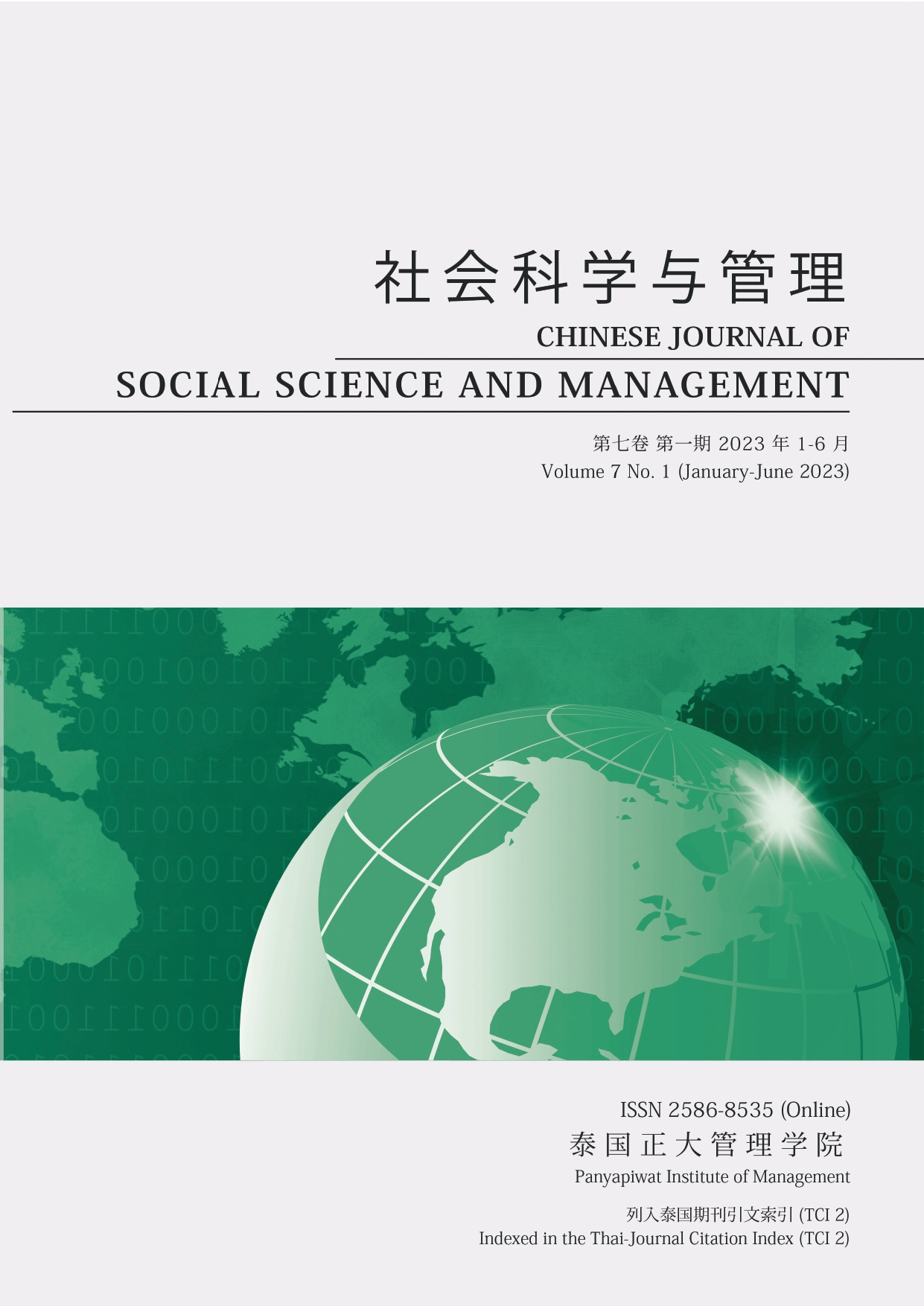THE KNOWLEDGE ACCEPTANCE MODE OF INTERNET EDUCATION PLATFORM BASED ON KNOWLEDGE SHARING PERSPECTIVE —TAKE MOOC ONLINE EDUCATION AS AN EXAMPLE
Main Article Content
Abstract
In today’s era of information explosion, the perceived value of knowledge, the intent to accept knowledge and the path of knowledge acceptance are very important for college students to improve the feasibility of knowledge acceptance behavior. Only by mastering the path of students’ knowledge acceptance behavior can they be based on the foundation of Internet education platform development and effectively solve the problem of low efciency of the students’ knowledge acceptance of Internet education. This article deduced the process of students accepting “MOOC” Internet education based on the knowledge-sharing path. The purpose is to design an Internet education platform for TR Preschool Education College, realize the power of knowledge dissemination at colleges, strengthen the quality of education, and improve the self-learning ability of college students to optimize the curriculum. In this article, a quantitative research method was used to conduct a questionnaire survey on the freshmen and sophomores of TR Preschool Education College. A total of 200 questionnaires were distributed, and 174 were recovered. Among them, 22 questionnaires with missing items and no MOOCs were excluded. After examining them, there were found to be 152 valid questionnaires. The effective questionnaires were described by SPSS software and analysis methods such as correlation and regression, which were used to analyze them. Finally, the knowledge acceptance model for the Internet education platform at colleges was deduced. The signifcance of this research is mainly reflected in the construction of a brand-new learning environment for college students based on the design of the knowledge acceptance platform of the Internet education platform at colleges. It is also an effective practice for the three-dimensional interactive structural relationship between technology, education, and society. It would be of great value to improve the level of knowledge management and cultivate multifaceted talents.
Article Details

This work is licensed under a Creative Commons Attribution-NonCommercial-NoDerivatives 4.0 International License.
Chinese Journal of Social Science and Management Editorial Division
The Office of Research and Development, Panyapiwat Institute of Management
85/1 Moo 2, Chaengwattana Rd., Bang Talat, Pakkred, Nonthaburi 11120, Thailand
Tel. 02 855 01048 E-mail: cjssm@pim.ac.th
References
Baron, R. M., & Kenny, D. A. (1986). The moderator-mediator variable distinction in social psychological research: Conceptual, strategic, and statistical considerations. Journal of Personality and Social Psychology, 51(6), 1173-1182.
Collins, C. J., & Smith, K. G. (2006). Knowledge exchange and combination: The role of human resource practices in the performance of high-technology frms. Academy of Management Journal, 49(3), 544-560.
Davis, D., Chen, G., Hauff, C., & Houben, G. J. (2018). Activating learning at scale: A review of innovations in online learning strategies. Computers & Education, 125, 327-344.
Davis, F. D. (1989). Perceived usefulness, perceived ease of use, and user acceptance of information technology. MIS Quarterly, 13(3), 319-340.
De Vellis, R. F. (1991). Scale development: Theory and applications. Sage.
Dijk, A. V., Hendriks, P. H. J., & Romo-Leroux, I. (2016). Knowledge sharing and social capital in globally distributed execution. ICFAI Journal of Knowledge Management, 20(2), 327-343.
Guajardo Leal, B. E., Navarro-Corona, C., & Valenzuela González, J. R. (2019). Systematic mapping study of academic engagement in MOOC. International Review of Research in Open and Distributed Learning, 20(2), 113-139.
Huang, W., & Zhao, P. (2016). Research on influencing factors of knowledge sharing behaviors of virtual community users. Information Science, 34(4), 68-73. [in Chinese]
Joksimović, S., Poquet, O., Kovanović, V., Dowell, N., Mills, C., Gašević, D., Dawson, S., Graesser, A. C., & Brooks, C. (2018). How do we model learning at scale? A systematic review of research on MOOCs. Review of Educational Research, 88(1), 43-86.
Klein, F. (2000). Lectures on mathematics. AMS Chelsea Publishing. Lee, D., Watson, S. L., & Watson, W. R. (2019). Systematic literature review on self-regulated learning in massive open online courses. Australasian Journal of Educational Technology, 35, 1-4.
Liu, J. (2019). Research on the influencing factors of user knowledge sharing in virtual communities [Doctoral dissertation]. Qufu Normal University. [in Chinese]
Paton, R. M., Fluck, A. E., & Scanlan, J. D. (2018). Engagement and retention in VET MOOCs and online courses: A systematic review of literature from 2013 to 2017. Computers & Education, 125, 191-201.
Wang, S., & Noe, R. A. (2010). Knowledge sharing: A review and directions for future research. Human Resource Management Review, 20(2), 115-131.
Wong, J., Baars, M., Davis, D., Van Der Zee, T., Houben, G. J., & Paas, F. (2019). Supporting self-regulated learning in online learning environments and MOOCs: A systematic review. International Journal of Human-Computer Interaction, 35(4-5), 356-373.
Zeng, X. (2019). Research on the influence of knowledge governance of high-tech enterprises on the innovation ability of knowledge workers under the background of “Internet+” [Doctoral dissertation]. Jiangxi University of Finance and Economics. [in Chinese]


